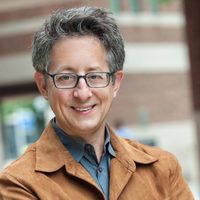The Reality of Myth for Yiddish Writers in Weimar Germany

|
Lecture
This event is part of Carnegie Hall’s Fall of the Weimar Republic: Dancing on the Precipice festival. Admission: Free |
Berlin in the Weimar Republic (1918-1933) — though peripheral to the centers of Yiddish culture in the United States, Poland, and the Soviet Union — offered financial windfalls and business opportunities for migrants with foreign currency, particularly for writers with contact to the American Yiddish press. Moreover, Germany, unlike Poland, maintained diplomatic and economic relations with the Soviet Union, which allowed writers sympathetic to the Bolshevik Revolution a safe haven.
The heyday of Yiddish culture in Berlin was relatively short-lived, dating from about 1921 until about 1926, after which the Soviet Union had achieved political stability and began to invest, at least for the next decade, in a wide series of Yiddish-language cultural institutions. Nevertheless, Berlin was an important way-station in the development of modern Yiddish culture and particularly a Yiddish avant-garde.
In historical terms, it is always necessary to distinguish between "myth" and "reality"; for Yiddish writers in interwar Berlin, however, what is fascinating is the degree to which myth and reality informed and interpenetrated one another. In this lecture, Marc Caplan will examine the historical significance and legendary allure of Weimar culture by considering three of its most significant Yiddish writers: Moyshe Kulbak, Dovid Bergelson, and Der Nister ("the hidden one," Pinkhes Kahanovitch).
This program is supported, in part, by public funds from the New York City Department of Cultural Affairs, in partnership with the City Council.

About the Speaker

Marc Caplan is a native of Louisiana and a graduate of Yale University. In 2003 he earned his Ph.D. in comparative literature from New York University. Since then he has held professorial appointments at Indiana University, Johns Hopkins University, Yale, the University of Wroclaw (Poland), and Dartmouth College, as well as research fellowships at the University of Pennsylvania, Harvard University, the Universität Konstanz (Germany), the Center for Jewish History (New York), and the University of Michigan (Ann Arbor). In 2011 he published How Strange the Change: Language, Temporality, and Narrative Form in Peripheral Modernisms—a comparison of Yiddish and African literatures—with Stanford University Press. His second book, Yiddish Writers in Weimar Berlin: A Fugitive Modernism, was published by Indiana University Press in 2021. Currently he is a senior lecturer in Yiddish literature for the Heinrich-Heine University in Düsseldorf, Germany.




